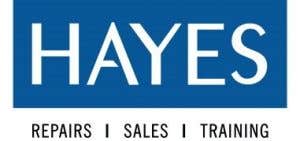COVID-19 Emergency Care and Transmission Precautions for Dental Offices
Dental workers have been in the spotlight recently for their potential role in the spread COVID-19 infection. This article is aimed to review and understand how dental services could lead to transmission of this disease, so that we can keep dental clinics open while protecting patients from an infectious source.
COVID-19 Transmission in Dental Offices
SARS-CoV-2, the virus that causes COVID-19, is thought to spread primarily between people who are in close contact with one another (within 6 feet) through respiratory droplets produced when an infected person coughs or sneezes. Airborne transmission from person to person over long distances may not occur as coughing and sneezing produce droplets only at short range.
Many considerations regarding possible hazardous activities or workplaces have been raised based on both our experience from previous outbreaks and our observations with the respiratory pattern associated with this new strain during its brief time in circulation. Among them, the potential for transmitting this virus through dental procedures and while working at your dentist’s office has attracted much attention resulting in either mandatory suspension until further notice or voluntary suspensions.
The concern about dental practice’s coronavirus transmission has been well-recognized around the world. The New York Times noted that dentistry was one of, if not the most at risk profession for nCoV-19 compared to other various occupations. Based on how frequently patients visit a dentist and are in close proximity with them during their procedures, it is easy for COVID-19 infected patients’ to spread the virus to dental team members by coming into contact and for not taking appropriate precautionary measures. Dental teams should be very familiar with health protocols such as the proper use of personal protective equipment and adherence to other cross-infection control measures.
Oral hygiene and preventive practices have always been very important, but now, in the current condition they are more critical than ever. Higher levels of oral hygiene could decrease the need for a person to attend a dental clinic for urgent matters, at the same time it can help significantly with removing viruses from your body every day.
COVID-19 Risks in Dental Offices
The practice of dentistry involves the use of rotary dental and surgical instruments, such as handpieces or ultrasonic scalers, and air-water syringes. These instruments create a visible spray that can contain particle droplets of water, saliva, blood, microorganisms (including bacteria), and other debris. Surgical masks only protect mucous membranes from spattering; they do not provide complete protection against inhalation during operations with infectious agents like COVID-19.
CDC Infection Control Recommendations
The CDC recommends using additional infection prevention and control practices during the COVID-19 pandemic, as well as standard practices recommended for all patients. The extra precautions are intended to apply to any patient or dental employee who may have been exposed while at risk or has suspected SARS-CoV-2.
Under the current COVID-19 pandemic, it’s important to make sure all patients are safe in terms of their dental health. As such, certain safety protocols have been introduced for everyone entering a Dental Healthcare Facility (DHF). These include:
- Elective procedures and surgeries should be postponed when possible;
- Teledentistry is used as an alternative form of communication with no need to enter a DHF building while still maintaining privacy;
- Patients will be screened before entering the facility for signs or symptoms related to COVID-19 virus infection so they can receive appropriate treatment if needed.
- DHCP will also be managed by making use of Universal Source Control Measures which ensures that any foreign strains from other countries do not infect our country’
Ensure that you and your team are always adhering to COVID-19 emergency care and transmission precautions in order to maintain a safe workplace. For in-house or online training, you may visit the links below:
Hayes also specialize in instrument sharpening & repairs. Our experienced technicians have decades of experience working with all major brands of dental handpieces including:
A-dec | Beyes | Bien Air | Denticator | Hall | Henry Schein | Impact Air | Kavo | Lares | Midwest | Morita | Nobel Biocare | Nouvag | NSK | Patterson | Schein Master | Shamrock | Star | Strauman | Stryker | W&H | Young | American Eagle | HU Friedy | Nordent | PDT




